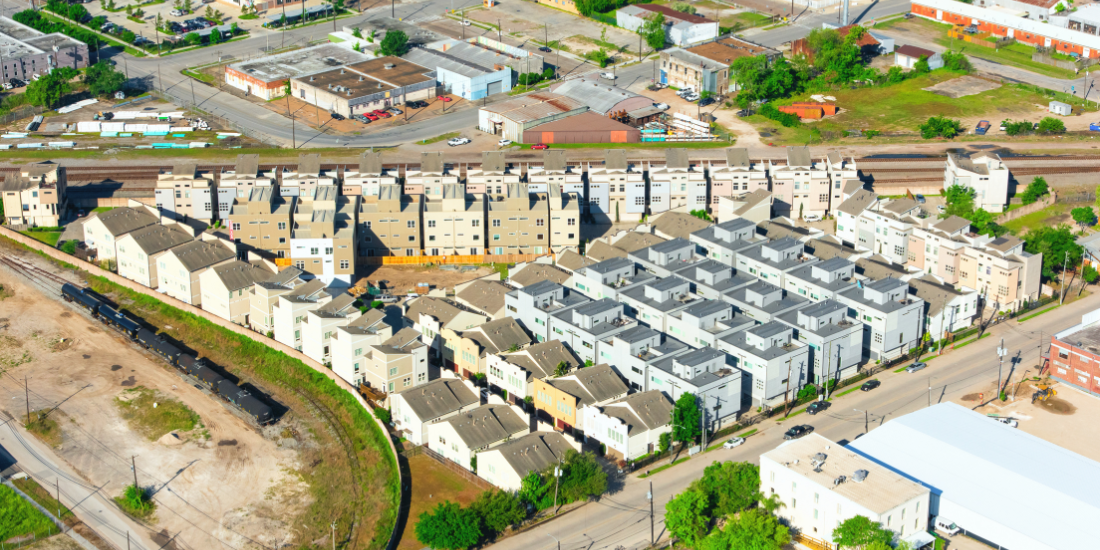Redevelopment projects play a significant role in shaping the landscape of communities across New Jersey. Whether revitalizing blighted areas, spurring economic growth, or improving infrastructure, redevelopment projects can have far-reaching impacts on neighborhoods and residents. However, navigating the complex web of redevelopment law in New Jersey can be challenging for property owners, developers, and local officials alike. In this blog post, we'll explore the key aspects of redevelopment law in the Garden State and provide insights into what you need to know.
Understanding Redevelopment
Redevelopment refers to the process of revitalizing and reusing underutilized or deteriorating properties to enhance economic vitality and quality of life. It is quickly becoming a very popular process since NJ is substantially developed. In New Jersey, redevelopment is governed by the Local Redevelopment and Housing Law (LRHL), which provides the legal framework for municipalities to designate areas in need of redevelopment, develop redevelopment plans and designate redevelopers, and pursue redevelopment projects.
The Redevelopment Process
The redevelopment process in New Jersey typically follows these key steps:
- Designation of Redevelopment Area: Municipalities identify areas in need of redevelopment based on criteria such as blight, deterioration, or lack of development potential underutilization or vacancy. The designation of a redevelopment area empowers local governments to exercise certain powers, such as property acquisition, zoning changes, and financial incentives.
- Redevelopment Plan: Once an area is designated for redevelopment, a redevelopment plan is developed outlining the goals, objectives, and proposed improvements for the area. The plan typically includes provisions for land use, and zoning regulations.
- Public Input and Approval: Redevelopment plans are subject to public review and input to ensure transparency and community engagement. After public feedback, revisions can be made and the plan is adopted by the municipal governing body through a formal resolution or ordinance.
- Implementation: With the adoption of the redevelopment plan, the municipality may proceed with implementing the proposed improvements, which may involve property acquisition, infrastructure upgrades, and collaboration with developers and stakeholders through the execution of a redevelopment agreement. This is a crucial step as it is a way to encourage favorable development by implementing favorable zoning regulations.
- Monitoring and Oversight: Throughout the redevelopment process, municipalities are responsible for monitoring progress, ensuring compliance with the redevelopment plan, and addressing any issues that may arise.
Legal Considerations
Navigating redevelopment law in New Jersey requires a comprehensive understanding of various legal considerations, including:
- Zoning and Land Use Regulations: Redevelopment plans often involve rezoning and land use changes to accommodate the proposed improvements. Understanding local zoning ordinances and land use regulations is essential for developers and property owners seeking to participate in redevelopment projects.
- Eminent Domain: Eminent domain allows governments to acquire private property for public use or benefit, including redevelopment projects. Property owners should be aware of their rights and protections under eminent domain law and seek legal counsel if faced with condemnation proceedings.
- Tax Abatements and Incentives: Redevelopment projects may qualify for tax abatements, incentives, or financing programs to encourage investment and development. Developers should explore available incentives and work with legal and financial advisors to maximize potential benefits.
- Environmental Regulations: Redevelopment projects may be subject to environmental regulations and permitting requirements, particularly for sites with potential contamination or environmental hazards. Compliance with state and federal environmental laws is crucial to avoid delays and liabilities.
Redevelopment presents opportunities for economic growth, community revitalization, and urban renewal in New Jersey. However, navigating the complexities of redevelopment law requires careful planning, collaboration, and legal expertise. Whether you're a property owner, developer, or municipal official, understanding the legal framework governing redevelopment is essential for successful project outcomes. By staying informed and seeking guidance from experienced legal professionals, stakeholders can navigate the redevelopment process with confidence and contribute to the sustainable development of New Jersey's communities.
To get expert assistance on your next redevelopment project, contact Semeraro & Fahrney, LLC today!









